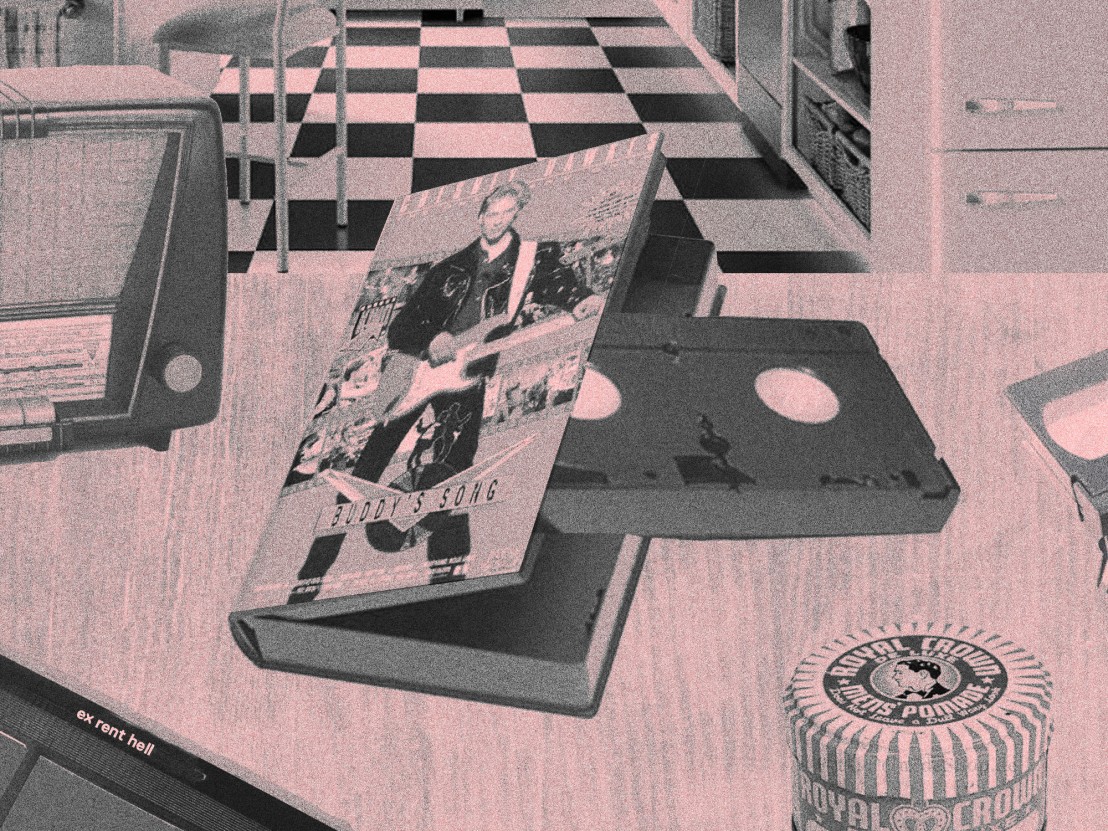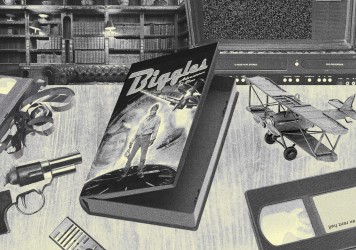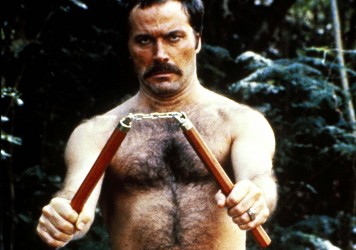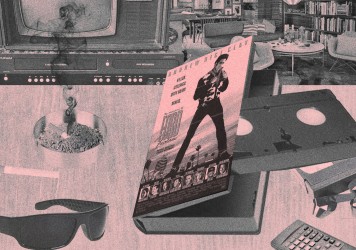
Ex-Rent Hell is a column dedicated to the seamier side of the 1980s VHS boom. Each week, ERH selects a film from this cursed era and asks one simple question: what went wrong?
The fall of the Berlin Wall might not immediately appear to have much bearing on director Claude Whatham’s 1991 film, Buddy’s Song. It is a keening synth-pop lament to the suburban ennui and generational terrorism of growing up young, gifted and pallid in the stifling Metroland of early-’90s Slough. Yet it is undoubtedly a cinematic problem child of those Cold War years.
Throughout the ’80s, Britain had been in economic and cultural thrall to the US. MTV, McDonalds and Miami Vice had seduced us all, but with the end of Cold War hostilities and the death of the Evil Empire, America packed up and went home, leaving no more than a metaphorical pile of soiled dollar bills on Blighty’s dressing table. We were no longer reborn in the arms of the USA, but were instead abandoned like spotty little teen-scream war-brides. We were left to slouch around suddenly-dismal provincial town centres in Mr Byrite denims and iffy Top Gunn jackets bought down the market. War, it appears, will make badly dressed corpses of us all.
Stalking through the wreckage is Buddy Clark (Chesney Hawkes). He is so blond, pale and wan that he looks like a working model of Nicholas Lyndhurst made entirely out of lolly sticks and yoghurt pots. Buddy is the young, disenfranchised face of New Europe. Caught up in a holding pattern of arrested adolescence, he spends his days bombing around in shopping trolleys amid the grimy modernist concretia of downtown Slough with his best mate, Mookie – a little black hip-hop kid with a Brooklyn accent and ill-fitting Dallas Cowboys jacket who may or may not be a figment of Buddy’s imagination.
Read more from Ex-Rent HellRepresenting the floundering, self-deluded Old Order is Buddy’s father Terry, played with puppyish incompetence by Roger Daltrey. Very much Del Boy to Buddy’s Rodney, Terry is yesterday’s man. A throwback. A Teddy Boy. A rockabilly relic desperately beating back strange computerised waves of change – symbolised here by a catalogue-bought Yamaha synthesiser. He is armed only with an inexhaustible arsenal of Brylcreem, doo-wop and working class intransigence. But when Terry is sent to jail for some Hamburglar-esque larceny, Buddy must ask himself some hard questions. The answers to which are found in purchasing an acid-yellow keytar, some PVC trousers and writing a clutch of piss-weak electro-yacht-rock no-nos.
The music-industry coming of age tale that follows is pitched somewhere between Rocky and Raining Stones; a Saturday Night Fever for the Smash Hits set. Buddy goes from stonewashed rags to mild riches while a supporting raft of errant soap stars rock to a Eurovision backbeat. Daltrey – long since relegated from manager to lackey to disgruntled heckler – carpet-bombs each and every concert with cries of “Get yer hair cut!”
By the time Buddy and his band, The Weaklings, sign with Rick Spangle of Mammoth Records, it is clear that the Ascent of the New has finally cast off the Bakelite shackles of post-War austerity and America’s cultural colonialism to break free into the sleek, digitised, and faceless future we all now enjoy. Mrs Thatcher had sold Daltrey’s England by the pound, and it was up to Buddy’s generation to somehow remortgage it. Not with anything as grubby or archaic as pounds, shillings and pence, and not with Yanqui dollars neither, but with energetic cross-platform pan-Europa saturation, a faecal hunger for the strictures of corporate complicity and music so empty, cold and incomprehensible that it exists solely as quantum foam.
This article was originally published in LWLies 51: the Inside Llewyn Davis issue.
Published 22 Mar 2016

Remember this culture-clash caper that told us America won the First World War?

By Anton Bitel
Classic ’80s actioners Enter the Ninja, Revenge of the Ninja and Ninja III: The Domination are coming to Blu-ray and DVD.

Remember when Hollywood attempted to parlay the stage act of a blue comedian into a wannabe raunchy comedy?